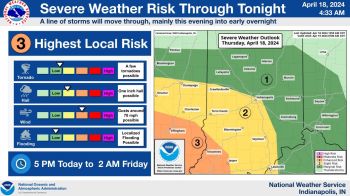WASHINGTON, D.C.–The next relief bill could be ready for the U.S. House to vote on as soon as Friday. But, Congressman Jim Banks (R-Ind.), says he will not vote for any bill that is full of earmarks and bailouts for states that have built up budget deficits after decades of unwise spending.
“The price tag of the current coronavirus aid package that Speaker (Nancy) Pelosi is working on at the moment could be as high as $2 trillion,” said Banks in a Facebook live video Monday afternoon. “There are lots of special interest, pork barrel spending deals that are being added to that package.”
Banks said he believes House Democrats have put out an open invitation to lawmakers to add what they want to the bill.
He said he’s particularly offended at one part of the bill.
“She (Pelosi) wants to spend most of that $2 trillion in bailing out blue states like Illinois, states that have a record of decades of mismanagement that have led to deficit spending,” he said.
Some Democratic governors, like New York’s Andrew Cuomo, have argued that their states deserve bailout money because of the amount they have paid in that has gone to help relieve red states in the past. Banks argued on Facebook that that is not the case with Indiana, pointing out Indiana’s rainy day fund, compared with Illinois’ budget shortfalls.
Banks said he doesn’t want to see some Democrats in Congress push a socialist agenda, using the pandemic.
“We can’t let Democrats use COVID-19 to reshape America to pursue the socialist agenda that Pelosi and so many House Democrats have staked out,” he said.
Banks said that he is proud to be a part of the new China task force, formed in the House.
“We can’t let the Chinese Communist Party profit off a pandemic of their own making,” he said. “This task force was supposed to be a bi-partisan effort. Sadly, Democrats backed out of the deal and said they wouldn’t participate.”
He said he believes that studying the origins and causes of the pandemic is the way to keep it from happening again and America from having to endure anything similar in the future.













